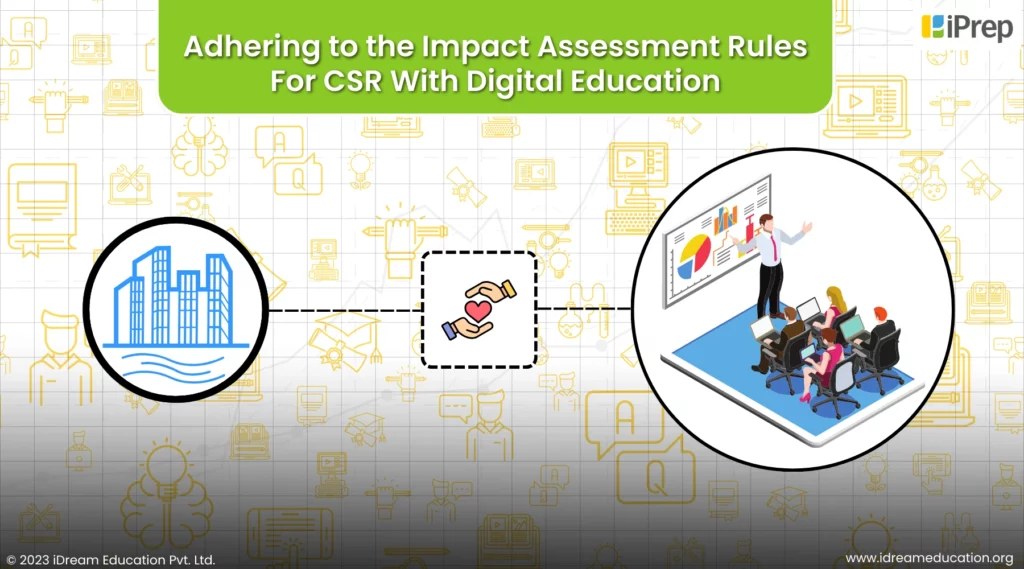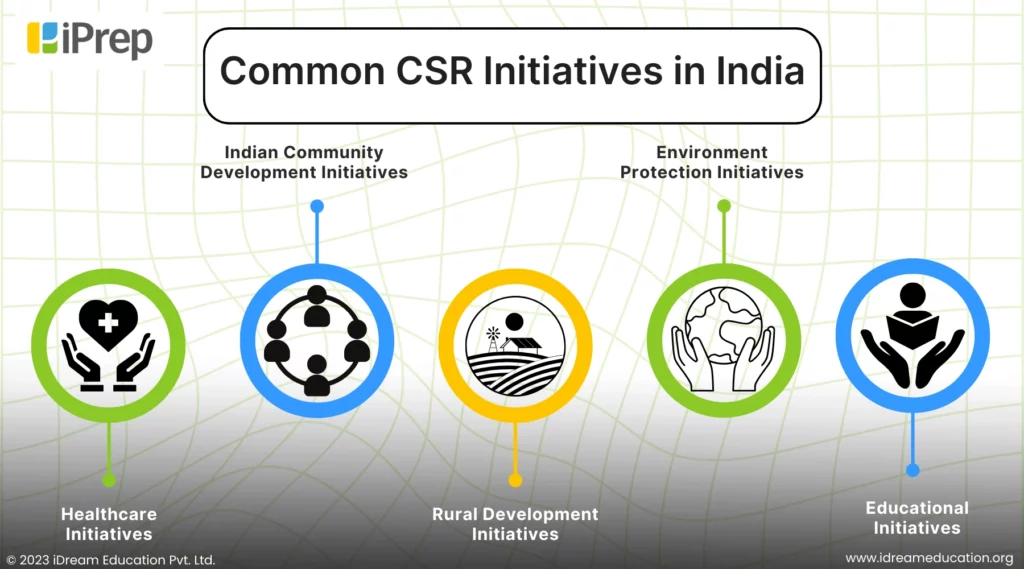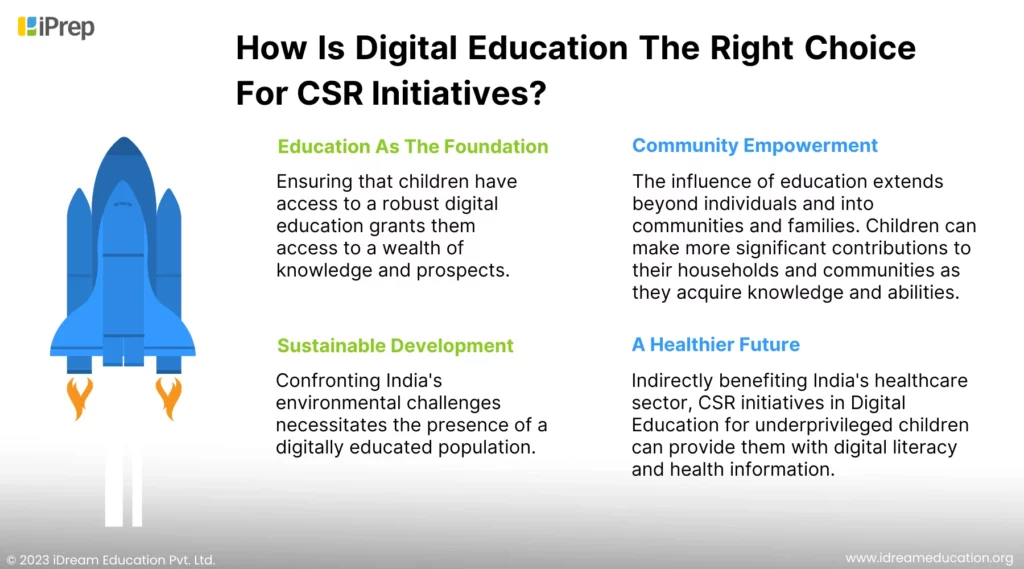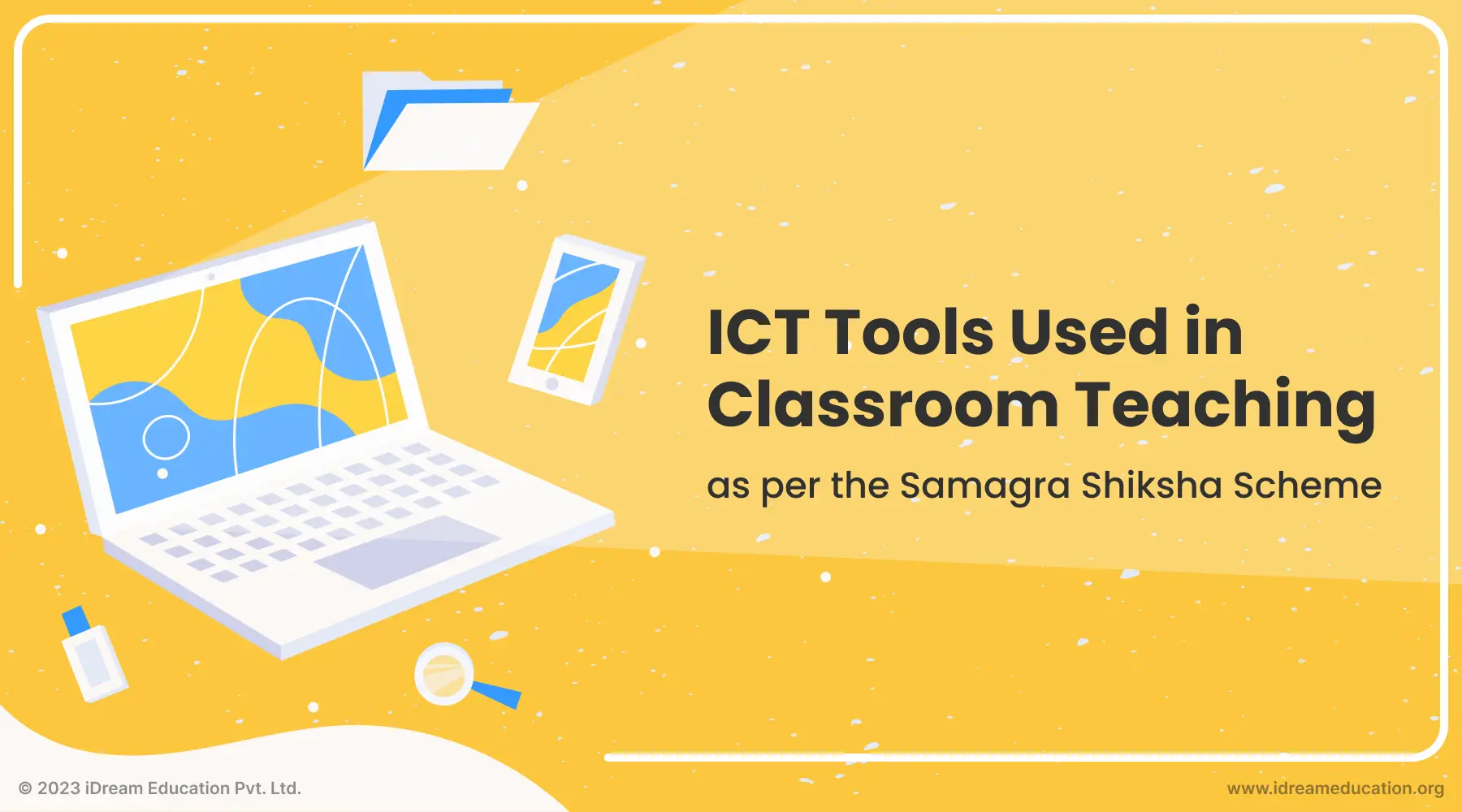Adhering to the Impact Assessment Rules For CSR With Digital Education

Corporate social responsibility (CSR) is an essential component of any company’s operations today. Especially the ones who are making good profits out of their business in India. Indian companies meeting any of these criteria – net worth > Rs.500 crore, turnover > Rs.1000 crore, net profit > Rs.5 crore, must spend at least 2% of their average net profit from the past three years on social responsibility efforts. For younger companies, the average is based on their existing financial years. It is mandatory to submit a report of these expenditures to the government near the end of the financial year. Earlier this expense report used to cover the Impact assessment reporting as well. However, the amendment made in 2023 as per the Ministry Of Corporate Affairs brought in some new “Impact Assessment Rules For CSR” for companies to adhere to.
The new amendment has updated standards that underline the significance of assessing and reporting the effect of CSR programs. Companies are urged to undertake impact assessments more seriously and share the results along with their CSR spending reports. The objective of the government imposing these impact assessment rules for CSR is to promote the prioritization of demonstrably effective initiatives.
This emphasis on Impact assessment is important as CSR expenditures contribute significantly to the social sector in India. As per the National CSR Portal, in the financial year 2021-22 itself, roughly Rs. 26210 Crores were spent on CSR initiatives by more than 20 thousand companies covering around 39 thousand CSR Projects. If an amount that big is being spent for the social good of our country, it is completely logical to assess its impact in detail. Therefore these new Impact Assessment Rules For CSR stand important. Let’s understand the new rules in detail.
The New Impact Assessment Rules For CSR
Following the amendment rolled out in 2023, there are significant changes in the impact assessment rules for CSR. The Main changes involve-
1. Separate Filing of Form CSR-2
The new impact assessment rules for CSR mainly mandate that businesses must submit Form CSR-2, which addresses the reporting of corporate social responsibility activities, in addition to their annual return by the 31st of March 2024 for the fiscal year 2022-23. This is done to enhance transparency and simplify the reporting process.
2. Impact Assessment: Revised Spending Limit
Historically, for conducting impact assessments on projects exceeding Rs. 1 crore, businesses were eligible to deduct a maximum of 5% of their total CSR expenditure or Rs. 50 lakh, whichever was less. The new threshold is 2% of total CSR expenditures or Rs. 50 lakh, whichever is less. This development may provide larger CSR budget holders with increased flexibility to conduct more thorough assessments for substantial projects.
3. Compulsory Evaluation for Specific Initiatives
For projects exceeding Rs. 1 crore that were completed no later than a year ago, companies with average CSR obligations in the preceding three years surpassing Rs. 10 crore are obligated to undertake independent impact assessments. It is now more crucial than ever to quantify and illustrate the favorable results of CSR endeavors, as this new requirement emphasizes.
These modifications demonstrate a renewed commitment to guaranteeing that corporate social responsibility (CSR) initiatives not only ensure but also yield concrete outcomes. The amendments seek to enhance the overall efficacy of corporate social responsibility in India by increasing the accessibility and necessity of impact assessment.
Now the question arises: what should CSR initiatives be around for them to be demonstrably effective? Let’s first understand what kind of CSR initiatives are usually carried out in India.
Common Types Of CSR Initiatives in India

There are several types of CSR Initiatives in which corporations invest their CSR funds for the betterment of the Indian Social Sector. The major ones involve:
1. Healthcare Initiatives
One of the major types of initiatives in which a major or part of CSR funds from all over India are invested is the healthcare initiatives. These involve constructing healthcare facilities, telemedicine, mental health education, and programs for the well-being of mothers and their children. The main agenda behind these is providing universally accessible healthcare, particularly in neglected communities.
2. Indian Community Development Initiatives
This is broadly a combination of various types of CSR Initiatives such as initiatives around Gender Equality, Women Empowerment, Old Age Homes, Reducing Inequalities, Heritage, Art, and Cultural Preservation. The main agenda is supporting healthy communities by reducing inequalities and highlighting the importance of cultural preservation, resilience, and overall well-being.
3. Rural Development Initiatives
These initiatives mainly focus on promoting Sustainable Agriculture, Expanding Financial Inclusion, Building Digital-Powered Villages, and Celebrating Artisanal Skills. The main agenda behind the rural development initiatives is solely providing rural areas with chances for livelihood, improved connection, and access to necessary resources to empower them.
4. Environment Protection Initiatives
These initiatives usually involve water conservation, biodiversity, and pollution control. CSR expenditures on initiatives such as Clean Ganga, Swach Bharat, etc. are also a part of Environment Protection Initiatives. such as The main agenda behind these initiatives is fostering sustainable habits to ensure a healthy earth for future generations while safeguarding the environment.
5. Educational Initiatives
These broadly cover early childhood education, STEM education, digital education, scholarships, vocational training programs, library & school construction, inclusive education, etc. The main agenda behind these Educational initiatives is resolving the disparity in educational opportunities and empowering future generations.
All these types of programs or initiatives are surely important to focus on. Each of them has its own set of advantages in terms of the betterment of society. However, the question lies in the introspection: can all these initiatives lead to demonstrable outcomes? Can all these initiatives help corporates investing in them to adhere to the Impact Assessment Rules For CSR?
The answer to that is “It Depends”. There are several ways in which corporations may spend their CSR funds on these initiatives, but ultimately they may or may not be able to demonstrate the impact in terms of the betterment of society. There can be various reasons behind these. Let’s unfold them one by one.
Barriers To Adhering To Impact Assessment Rules For CSR
Several barriers come in the way of corporations being able to adhere to the Impact Assessment Rules For CSR. These barriers that make it difficult to effectively assess the impact of CSR expenditures involve:
1. Absence of Clear Objectives and Evaluation Criteria
With clearly defined goals and quantifiable benchmarks, evaluating the efficacy of corporate social responsibility (CSR) endeavors becomes feasible. Thus not allowing organizations to adhere to the Impact Assessment Rules For CSR. Companies often initiate projects with ambiguous goals, such as “enhancing education” or “empowering communities,” which might hinder the ability to monitor progress or measure the actual impact.
2. Investing in Modest, Short-Term Projects
Short-term projects may provide immediate advantages but lack lasting impact, making them unsustainable. Endeavors require consistent financial resources and assistance to generate enduring and demonstrable outcomes. Therefore, if a corporation invests in short-term projects, it may be difficult to adhere to CSR impact assessment rules.
3. Inadequate Preparation and Implementation
Deficient planning and execution can impede even well-meaning endeavors. Insufficient investigation or initial research, absence of community engagement, and unsuitable interventions can result in initiatives with little influence, thus making it difficult to adhere to the impact assessment rules.
4. Dependence on Untrustworthy Collaborators
Companies that delegate CSR activities to partners that lack the necessary qualifications or have a history of corruption are in danger of experiencing failure. The absence of transparency and accountability might pose challenges in monitoring financial resources and ensuring their effective execution. Therefore, unfortunately in such cases, the corporation won’t be able to adhere to the impact assessment rules for CSR.
All that constitutes the barriers that may come in the way of an organization trying to adhere to the Impact Assessment Rules For CSR. But how can corporates avoid or overcome these barriers? Also, what type of CSR Initiatives can be highly efficient for corporations that aim to create a long-lasting, positive, and demonstrable social impact while ultimately adhering to the Impact assessment Rules For CSR?
The answer is none other than “Education,” or “Digital Education,” to be precise. To be clear, we aren’t talking about focusing solely on Digital Education, what we suggest is that these corporates should majorly focus on rolling out Digital Education Initiatives if they aim to foster demonstrable and long-lasting impact. Digital Education has the power not just to benefit the educational landscape but also indirectly yet positively impact the other fields we discussed in the types of initiatives part above. It has the potential to ensure that an organization thoroughly adheres to the Impact Assessment Rules for CSR. Let’s have a detailed look at what makes digital education the right choice for CSR initiatives.
How Is Digital Education The Right Choice For CSR Initiatives?

The potential impact of investing in digital education for marginalized children in India extends beyond the realm of education and encompasses the entire social and economic environment. Also, the impact assessment possibilities in the digital education initiatives completely align with the Impact Assessment Rules For CSR. The following is why:
1. Education As The Foundation
Ensuring that children have access to a robust digital education grants them access to a wealth of knowledge and prospects. They overcome socioeconomic and geographical barriers by gaining access to personalized learning paths, interactive learning resources, and global connections. This establishes the foundation for enhanced scholastic achievements, increased prospects for future employment, and an improved capacity to contend in the globalized marketplace.
2. Community Empowerment
The influence of education extends beyond individuals and into communities and families. Children can make more significant contributions to their households and communities as they acquire knowledge and abilities. Enhancing overall well-being, digital literacy grants individuals access to critical information regarding healthcare, sanitation, and financial management. Educated adolescents have the potential to effect change by fostering entrepreneurship and rural development.
3. Sustainable Development
Confronting India’s environmental challenges necessitates the presence of a digitally educated population. They are capable of advocating for environmental protection, adopting climate-friendly technologies, and comprehending the significance of sustainable practices. Through the promotion of environmental consciousness and proactive measures, digital education plays a significant role in ensuring that future generations inherit a more sustainable planet. That way these outcomes will not just help corporations efficiently adhere to the impact assessment rules for CSR, but will also help them come out as responsible and sustainable businesses.
4. A Healthier Future
Indirectly benefiting India’s healthcare sector, CSR initiatives in Digital Education for underprivileged children can provide them with digital literacy and health information. With this, There will be less demand for public healthcare systems and a healthier future for everyone. That is because educated people will use telemedicine, become educated patients, contribute to community-driven health initiatives, and break the cycle of poverty.
While more conventional forms of corporate social responsibility (CSR) can make significant contributions, the transformative impact of digital education is unparalleled. Through its ability to overcome obstacles, inspire individuals, and spark long-lasting change throughout communities, it is essential. Considering the CSR expenditures in the year 2021-22, the expenditure trends have started to show that even the corporations who get involved in CSR do believe in the potential of Educational Initiatives. Out of the total Rs. 26210 Crores spent on CSR Initiatives in 2021-22, roughly 25.5% i.e. approx Rs. 6693 crores was spent on Educational Initiatives. That itself is evidence of the potential of Educational Initiatives.
When you invest in digital education as part of your corporate social responsibility activities, you will see the power of knowledge spread outward, making the future more promising for students from disadvantaged backgrounds and paving the path for a more equal and prosperous society. Now, let iDream Education be your guide in this impactful journey.
iDream Education: Your Reliable Partner for Corporate Social Responsibility Initiatives Driven by Digital Education
Taking into consideration the obstacles that have been discovered in the process of complying with Impact Assessment Rules in CSR as well as the advantages of Digital Education, let’s investigate how working with iDream Education can be the solution to your problem.
As your dependable partner, iDream Education assists you in overcoming every barrier that may come up when trying to adhere to the Impact Assessment Rules For CSR. It can also help you maximize the good impact that your Digital Education CSR projects have. How? Let’s have a look.
Addressing The Barriers
Here is how iDream Education addresses the Barriers to adhering to Impact Assessment Rules For CSR
1. Clear Objectives and Evaluation Criteria
We at iDream Education work closely with you to establish SMART goals for your CSR initiatives. These are goals that are Specific, Measurable, Attainable, Relevant, and Time-bound. We also design robust evaluation frameworks. With our solutions, we provide data-driven insights and actual impact reports. Our digital platforms are fully customizable and measure teaching and learning progress in real-time. This makes it easy to adhere to the Impact Assessments Rules of CSR.
2. Investing in Sustainable Impact
We go beyond short-term programs and create sustainable, long-term initiatives with constant support and resource allocation. This is what we mean when we talk about investing in sustainable impact. Our Digital Education programs are meant to be scalable. This ensures that they will have an impact that is long-lasting beyond the initial investment.
3. Comprehensive Preparation and Execution
With our considerable experience in the industry, we guarantee that our preparation will be meticulous. We also come with an assurance that our execution will be faultless. When it comes to achieving maximum effectiveness, we carry out comprehensive needs assessments. We also involve communities and put into context-specific action solutions. That way, working with us eliminates the possibility of corporations violating the impact assessment rules of CSR.
4. Dependable Partnership
We are a reliable partner with a proven track record of working with more than 50 corporate bodies for their CSR initiatives nationwide to roll out demonstrably effective digital education-driven CSR Initiatives. A corporation working with us will be able to confidently comply with CSR standards thanks to our transparent processes and ethical policies, which guarantee responsible resource management and responsibility together with adherence to the Impact Assessment rules for CSR.
Demonstrating Impact Through Continuous Assessments and Measurable Benefits
iDream Education offers more than a mere suite of digital learning solutions. Our CSR partners are enabled to demonstrate the concrete effects of their endeavors on students hailing from underserved and last-mile communities, with the assistance of our suite of varied digital learning solutions customized to their particular requirements loaded with real-time progress tracking systems. These progress tracking reports are enough for the corporates to effectively adhere to the Impact Assessment Rules For CSR. However, when needed, we can go beyond with an even more detailed view of teaching and learning progression coming from the benefited students, teachers, and schools. This is accomplished by adding a comprehensive three-phase assessment procedure:
1. Baseline Assessment
To commence, a comprehensive needs assessment is performed around the beginning of the educational project or academic cycle to ascertain the learners’ current technological proficiency, knowledge, and abilities. The provided data sets a foundational standard by which further advancements can be evaluated.
2. Midline Assessment
A midpoint assessment is performed during the project’s execution to evaluate the efficacy of the digital learning solutions that have been implemented. This enables us to identify areas that require improvement and implement necessary adjustments, thereby ensuring that the program remains aligned with its intended objectives.
3. Endline Assessment
To evaluate the overall effectiveness of the digital learning solutions, we conduct a thorough end-line assessment towards the end of the project or academic cycle. This evaluation examines the changes in student learning outcomes, the advancements in technology access, and the realization of any wider social or economic advantages.
The combination of these three assessments brings in strong evidence of teaching and learning progression. These can efficiently signify the positive social impact created by the CSR Initiative thus allowing further adherence to the Impact Assessment Rules For CSR.
iDream Education’s Comprehensive Digital Learning Solutions
A brief overview of our extensive collection of digital learning solutions that cater to all kinds of educational settings and effectively contribute to CSR impact assessment involves:
iPrep Digital Class
Interactive Smart Class solution with efficient hardware options including Interactive Flat Panels, Smart TVs, Digital Boards, or projectors. Comes with with curriculum-aligned content and engaging digital resources.
The Demonstrably effective results of iPrep Digital Class include increased student engagement, efficient delivery of teaching instruction, effective lesson planning, faster and effective coverage of the curriculum, improved understanding of complex concepts, and enhanced collaboration skills.
iPrep Digital Library
A Smart ICT LAB solution, based on Android Tablets or Notebooks (Android Laptops) preloaded with a vast library of digital content accessible offline and online. Comes with a moveable and lockable charging trolley that can charge multiple devices with one single connection.
The Demonstrably effective results of iPrep Digital Library involve increased independent learning, enhanced individual progress tracking, improved access to diverse learning materials, and self-paced learning progress.
iPrep PAL
Personalized Adaptive Learning platform that tailors content and learning pathways to individual student needs. It diagnoses the current learning levels of all learners and then customizes learning paths for each learner as per their individual needs. With its personalized learning path and adaptive content delivery, it ultimately helps each learner to achieve grade-level proficiency.
The Demonstrably effective results of iPrep PAL involve a Personalized learning experience, improved learning gaps identification, mastery of all topics >chapters > subjects, and faster learning progress for individual students. We also provide PAL Labs, which are personalized adaptive learning labs that combine the benefits of iPrep Digital Library and iPrep PAL and make the outcomes more demonstrably effective.
iPrep Tablets
These are Preloaded tablet devices with highly enjoyable and comprehensive, bilingual educational content and monitoring tools for offline independent learning in schools or at home.
The Demonstrably effective results of iPrep Tablets involve increased individual access to technology, improved technology literacy, joyful learning experience, and offline learning opportunities in resource-limited settings.
iPrep App
A mobile app offering access to educational content, assessments, and holistic growth content for learners to learn anytime, anywhere, and learn unlimited.
The Demonstrably effective results of the iPrep App are enhanced learning mobility, access to educational resources outside the classroom, limitless learning opportunities, access to holistic growth resources, and multigrade access.
That way, your partnership with iDream Education can lead you toward a seamless execution of your CSR initiatives that adhere to the Impact Assessment Rules For CSR with demonstrably effective outcomes. That’s not it. We at iDream Education have digital education solutions in ways that amplify the benefits corporates may achieve by planning CSR initiatives around Digital Education for the underserved. How? Let’s have a look.
Amplifying the Benefits Of Digital Education-Related CSR Initiatives
Partnering with iDream Education can efficiently amplify the benefits of digital education-related CSR Initiatives, Let’s see how:
Scalability and Reach
Our digital platforms can scale without difficulty, allowing us to reach communities that are located in different geographic locations easily. You can have a greater impact and bring about broader societal change due to this. Let’s understand what makes our solutions scalable:
- Learning Content in Local Language: Our digital learning solutions are completely bilingual and come in nine different languages, including Hindi, English, Tamil, Telugu, Kannada, and more. That way, with our digital learning solutions, corporates can reach even the remotest of locations in India where the local language is the only basis of communication and, thus, education.
- Alignment with all educational boards: our digital learning solutions come with digital learning content, the curriculum of which is completely aligned with the CBSE as well as stateboards. So whether it is a CBSE school or a state board school, our digital learning solutions can always come into play.
Cost Effectiveness
Compared to more conventional interventions, our digital solutions have a greater impact on each spent rupee, demonstrating both efficiency and cost-effectiveness. Your corporate social responsibility budgets will be optimally used as a result, and the results your expenditure will generate will not just be long-lasting and positive but will also be demonstrably effective.
Measurable Outcomes and Reporting
We at iDream Education offer complete impact reports that include proof driven by statistics to demonstrate how your activities effectively improve the learning outcomes of the children covered under your CSR initiative. This indicates your investment’s value and satisfies the corporate social responsibility impact assessment and reporting standards.
Long Lasting Positive Impact
When you partner with iDream Education, you are doing more than just conforming to the many CSR standards and Impact Assessment Rules. By utilizing the revolutionary potential of digital education, we provide you the ability to produce an influence that is both genuine and long-lasting. As an extension of your corporate social responsibility (CSR) initiatives, we guarantee a successful implementation, measurable outcomes, and a legacy of positive change within your organization.
Let’s Conclude
The “Impact Assessment Rules for CSR” in the 2023 amendment have become one of the most important parts of the constantly changing field of corporate social responsibility (CSR). These rules stress not only keeping records of expenditures but also showing how efforts have changed things. As businesses look at their many CSR choices, digital education stands out as a powerful way to bring about big changes. Traditional CSR projects make a big difference, but digital education has the power to do even more by removing barriers, making an effect that lasts, and increasing benefits.
iDream Education stands out as a trustworthy partner because we not only help you overcome obstacles but also make sure that Impact Assessment Rules are followed by having clear goals, investing in long-lasting effects, carrying out comprehensive projects, and building dependable partnerships. iDream Education doesn’t just conform to CSR guidelines on this journey, it also leads organizations to a future of real and long-lasting effect. Thus promoting progress and positive change.
Allow iDream Education to serve as your reliable partner on your journey toward implementing CSR programs that are both meaningful and compliant through the use of digital education. Contact us now by filling out the Contact Us form. You can also write to us at growth@idreameducation.org or call us at +91 7678265039






